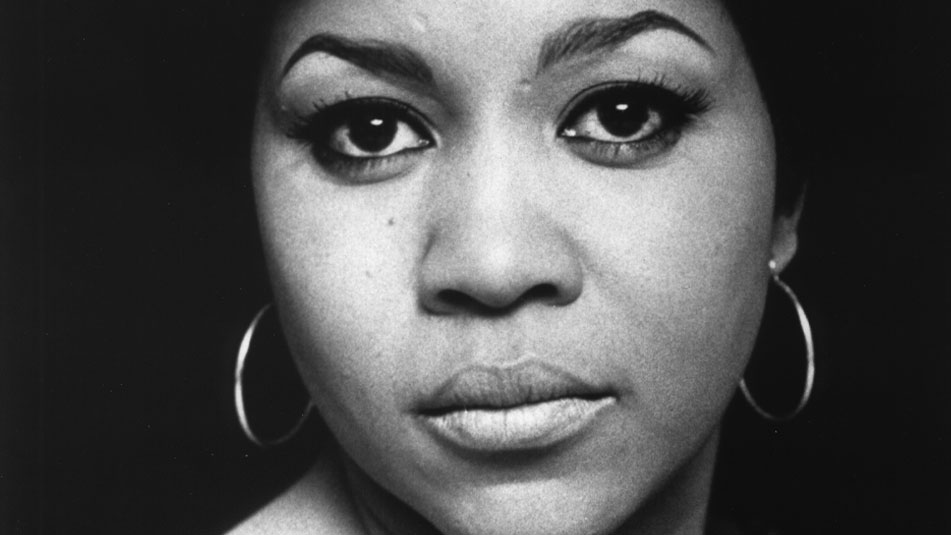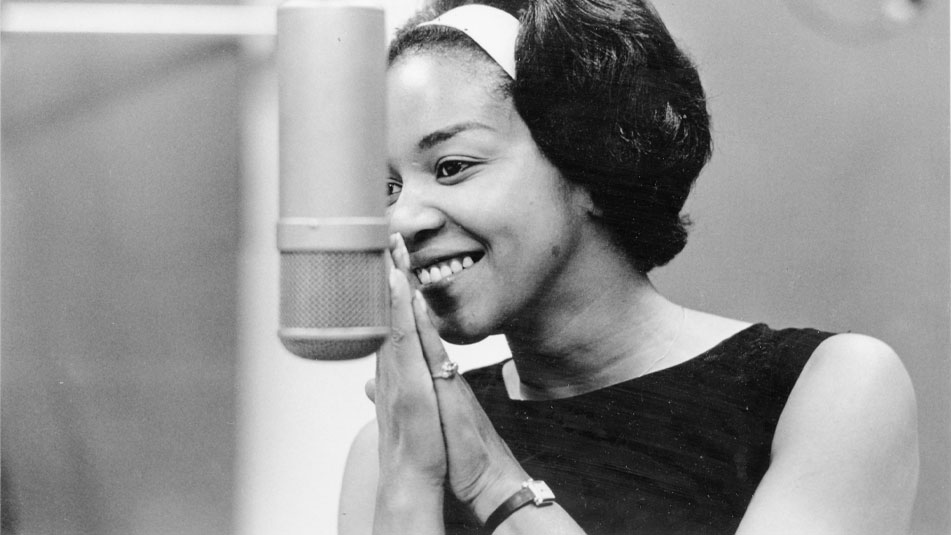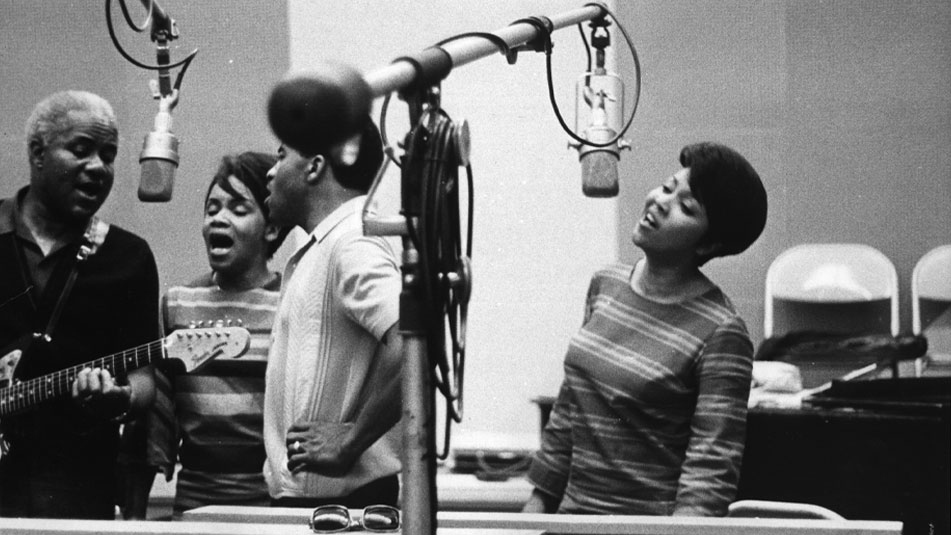MAVIS STAPLES: THE SOUND OF FREEDOM
January 23, 2020 | by Richard Scheinin

Mavis Staples
Mavis Staples recalls the moment she became aware of her power as a singer. It happened in the late 1940s. She was nine years old and “already had begun singing in church,” she remembers, “and I saw the people coming around crying. Some were crying, some were smiling and wanted to shake my hand,” she says, painting a picture of that morning at Mount Eagle Baptist Church on the South Side of Chicago. “I was just a little girl, and, at first, when I saw the people crying, I asked my mother: I said, `Mama, what did I do to those people to make them cry?’ And she said, `Baby, you singin’—they’re crying because they love what you’re doing. You’re makin’ ‘em feel good.’ And when she said ‘makin’ ‘em feel good,’ it made me feel happy. And that just let me know that this is what I wanted to do. I wanted to sing.”
She has been doing it for 70 years—longer than the Rolling Stones and longer than her friend Bob Dylan, who once said that Mavis’ voice “made my hairs stand on end” when he first heard it on the radio as a boy. It’s a typical response. When you think about the great voices of gospel, blues, and jazz, you think about Mahalia Jackson and Aretha Franklin, Muddy Waters and B.B. King, Sarah Vaughan and Ella Fitzgerald. And you think about Mavis. She moans, she shouts, she rumbles, she preaches. Her friend Bonnie Raitt has joked that Mavis’ “once-in-a-lifetime voice”—ghostly, husky, and low—produces frequencies measurable only by advanced electronic devices. As lead singer for the Staple Singers, her family’s band, Mavis set that voice to historic work: She helped create a soundtrack to the civil rights movement of the 1960s and beyond, singing songs like “Freedom Highway,” “Respect Yourself, ” and “I’ll Take You There.”
She takes us—always has—to a place of joy, inspiration, and positive vibrations. No wonder SFJAZZ is honoring Staples with a Lifetime Achievement Award. Just as jazz and gospel music are constantly moving forward—sister traditions, in perpetual transition—so is Staples, whose approach to gospel, soul, and roots music has never stopped evolving.
Raised in Chicago when that city was the nation’s gospel capital, she and the Staple Singers—founded by her late father, Roebuck “Pops” Staples—emerged as superstars of the gospel movement that held African-American audiences rapt at mid-century. In 1956, they scored one of the first million-selling gospel hits, “Uncloudy Day.” By the early ‘60s, they were fixtures at civil rights rallies around the country, standing beside Martin Luther King, Jr., who would turn to Mavis’ father and say, “Stape, are you gonna sing my song tonight?” He was referring to “Why Am I Treated So Bad?", one of the landmark protest songs penned by Staples. Even during their chart-topping days as R&B stars during the 1970s, those freedom songs remained part of the group’s repertoire—half a century later, they’re still on Mavis’ set list. At age 80, she calls herself a witness to the ongoing struggle for social justice—and believes songs can “fix the world.” She describes her music as “a beacon.” It spreads hope. It inspires. “For me,” says Bonnie Raitt, who has toured extensively with Staples, “Mavis has one of the most positive, love-inspired, uplifting messages—of faith, of justice, of working for freedom and equality. In my opinion, the greatest preacher of that message in my lifetime has been Mavis Staples, and in the most wonderful way, because it’s in the music that she sings. She’s our personal preacher.”
The power of that message—embedded in that voice—has drawn many collaborators into her orbit: Dylan, The Band, Prince. Cannonball Adderley was a good friend—yes, she’s a jazz fan—and she once asked Dizzy Gillespie to recommend a voice teacher. (He told her she didn’t need one.) Over the last 15 years, she has recorded a series of acclaimed solo albums, enlisting some of the top figures in the business—Ry Cooder, Jeff Tweedy, Ben Harper—to produce them. Her late-career renaissance complements a lifetime of innovation and reinvention: “Mavis is a pillar of American music,” says Randall Kline, SFJAZZ Founder and Executive Artistic Director. “She has this completely joyous personality, as well as an authenticity that attracts musicians and audiences. When someone sits down in the concert hall for a performance by Mavis Staples, they say, `I want to be moved. I’m ready to be moved.’”
A three-time GRAMMY-winner and a member of the Rock & Roll Hall of Fame, Staples has performed a number of times at SFJAZZ, including with the Blind Boys of Alabama and as part of a tribute to Mahalia Jackson—who Staples knew as a child in Chicago. Her upcoming performances (Jan. 30, 31, and Feb. 1) are her first here in more than a decade, marking her debut at the SFJAZZ Center, which opened six years ago. When she receives her Lifetime Achievement Award at the organization’s annual Gala on Jan. 30, many of her musical friends will perform in tribute to her, including Bonnie Raitt, Rosanne Cash, Lizz Wright, and Charlie Musselwhite. They are likely to join Staples when she digs into some of her favorite songs: “Wade in the Water,” “Will the Circle Be Unbroken” and “The Weight.” The audience will get to experience the weight of her voice, its grit, and her way of inciting listeners to shout back at her – and if they do, she threatens, she may just sing all night.
As with so many artists, Staples’ musical powers flow from an extensive roots system—most notably from her father, her mentor and inspiration. 
Mavis Staples

Pops Staples and the Staple Singers
As a child in Mississippi, Pops Staples—the son of a sharecropper—lived at Dockery Farms, often described as the birthplace of the Delta blues. Blues legends Charley Patton and Howlin’ Wolf were among the locals, and Pops absorbed their approach. But he also had a way of pushing across musical borders—a quality that rubbed off on his daughter. Later, after moving to Chicago, Pops put a tremolo bar on his guitar. It gave him his signature sound, a kind of trembling electronic wash—a very urban sound overlaying his country blues roots. “And let me tell you,” Mavis remembers, “Elvis Presley told me one time, ‘I like the way your father plays that guitar. He plays a nervous guitar.’ She breaks into laughter. “I loved the sound of Pops’ guitar. He and B.B. King, they were tight buddies. And do you know, for years, my sisters and I, we’re singing gospel with Pops, and we didn’t realize that Pops was actually playing the blues on his guitar.”
In the 1960s, the Staple Singers—Pops, Mavis, and (at one time or another) sisters Cleotha and Yvonne and brother Pervis—began to break out of the gospel circuit. As they expanded their audience, covering “message” songs by Dylan and Stephen Stills, Mavis asked her father, “`Daddy, why are they inviting us to these blues festivals and jazz festivals?’ He says, ‘Mavis, you listen to our music—you will hear jazz, you will hear blues, you will hear every kind of music in our music. And I did; some of it sounds like we’re singing country. You know, we just had a different, unique sound. And that comes from my father and his family. There were 14 of them, seven boys and seven sisters. And the sound that they had”—the harmonies they sang together as children—“that’s the sound he gave us.”
The Staples became known as “God’s greatest hit makers,” standing next to Dr. King and touring the world: “I was just a little short, skinny girl with this big voice,” she says. “And man, oh, we just had so much fun.” She recalls the annual Fourth of July parties in her family’s backyard in Chicago. Everybody would be there: Sam Cooke, Jerry Butler, Bobby Womack, Nancy Wilson, Ray Charles, Jesse Jackson, Curtis Mayfield, Stevie Wonder, Mahalia Jackson. Mavis’ mother, Oceola Staples, would cook up a feast: spaghetti and meatballs, barbecue, baked beans, potato salad and coleslaw, and homemade banana ice cream. “And Sister Mahalia Jackson—you know she was the greatest gospel singer in the world,” Mavis says. “Now that was my idol. And she would tell me, ‘Baby, come here, baby.’ I would go, and she would say, ‘Get me a little more of that ice cream.’ I said, ‘Yes ma’am. I’ll get you some!’”
Looking back on her life, she says, “It is like a dream. Because it was something that I was not expecting. I never, never thought that we would go as far as we did. My goodness, I don’t have to tell you—it’s been documented that I’m 80 years old now. And I declare, I never thought I’d be singing this long and that people—they come out, my audience is still from 8 to 80. The young kids, the college students want to hear it. And I talk to Pops all the time. I tell him, `Well, Daddy, I know you’re watching me. I’m still at it.’”

SFJAZZ Gala 2020 honors Mavis Staples with a Lifetime Achievement Award on JAN 30. The Gala concert is sold out, but limited After Party tickets featuring Con Brio, The Suffers, and Tiffany Austin are available.
A staff writer at SFJAZZ, Richard Scheinin is a lifelong journalist. He was the San Jose Mercury News' classical music and jazz critic for more than a decade and has profiled scores of public figures, from Ike Turner to Tony La Russa and the Dalai Lama.
